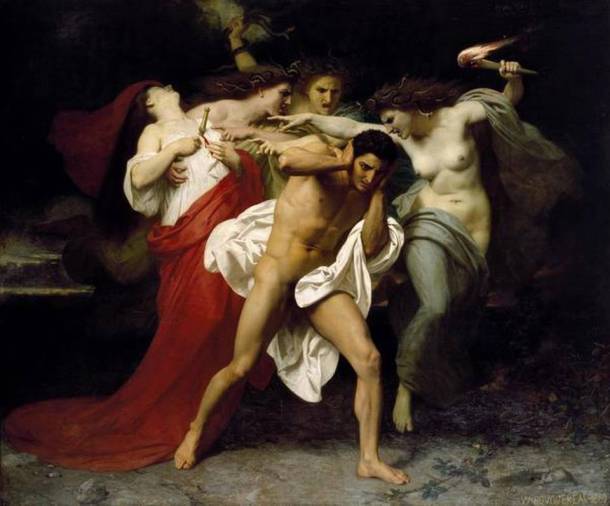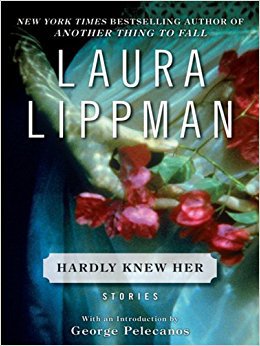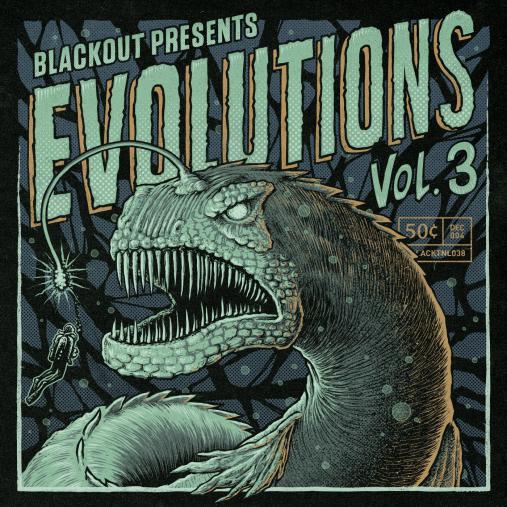The gods of Mount Olympus are still with us. Their tales, myths and tragedies are intertwined with our days. When we gaze in the mirror for too long and see Narcissus, when a son is too close to his mother like Oedipus, when a daughter is obsessed with her father like Elektra, the Greek tragedies are there. When there’s a murder in the family like a Clytemnestra stabbing her Agamemnon, the tragedies from the epics are still with us.
The Greek gods may have long been buried, chased from the realm of theology and temples of worship to be corralled into museums and libraries, frozen in mawkish statues and in theatre plays, but they are still with us along with their tragedies. And more so this literary season.
It may just be remarkable coincidence, but there have been three intense recent novels all reinterpreting Greek tragedies — Orhan Pamuk’s The Red-Haired Woman obsessing with patricide; Kamila Shamsie’s Home Fire reimagining an Antigone among Islamic State fighters; and Colm Toíbín’s House of Names, adapting contemporary language and family relationships to the matricide of Clytemnestra.

Fragile divinity
How and why did we get to the 21st century still reworking the same old plots, still gazing at the same old gods we thought had vanished to the distant planets we named after them?
The Iliad and the Odyssey are considered the origins of Western literature. Greek tragedians took Homer’s characters and created plots of their own, just like today’s novels integrate myths with contemporary language. Once reworked by Euripides, Aeschylus’s Oresteia strayed so much from the original that some consider it the real birth of fiction. ‘Based on a true myth,’ I presume the book would warn readers were it printed today.
This literary trend didn’t fade when Greece was crushed by Rome. Latin poet Horace put it plainly in his epistles: “Greece, in fact, conquered us by bringing her arts into rustic Latium.” The victims’ culture seeped into Roman values through the Hellenisation of literature and art.
Latin poet Virgil was the pioneer; his Aeneid is a sequel to the Iliad, and tells of Aeneas escaping from the charred ruins of Troy and reaching Italian shores, the mythological representation of the cultural thread joining Greece to Rome. Then, the Empire brought Greek myths to an invaded Europe. Later, Western colonisation spread these myths to the Americas and beyond.
Throughout the following millennia, Greek polytheistic myth experienced moments of fortune but also of oblivion. Greek gods continued their metamorphosis, not only from Zeus to Jupiter, but from divine to oh-so-human. But the gods have always been keen on metamorphosis — once, shape-shifting Zeus even trickled down through a roof as golden rain to impregnate a lady. Yet, in Shakespeare, Giordano Bruno, Torquato Tasso or Cervantes, the gods began to take on very humanly fragile dimensions, while mortals were increasingly invigorated by divine qualities. These authors created a new mythology by fusing Greco-Roman with Christian themes.
Mount Olympus experienced a prolific revival of its allegories during the Renaissance and the Baroque. Ovid became a major influence for poets and artists. Enlightenment, led by Voltaire, only made parodies of what it perceived as obscurantist legends. And Romanticism seemed mostly interested in individual countries’ national pasts rather than in the archetypes of southern Europe. But the gods of Mount Olympus just wouldn’t die.
Why, then, did the 20th century rediscover Ancient Greece?
The birth of psychoanalysis has its part. The Oedipus complex, Narcissism, the Elektra complex: a now somewhat discredited Sigmund Freud borrowed from myth to explain mental conditions. In literature, Tolkien and Rowling, but before them James Joyce, Italo Calvino and Roberto Calasso all dipped their pens into the cornucopia.
March of folly
In the 20s, the Fascists discovered a renewed pride in the remote past of Roman imperialism by poking awake the sleeping deities. In the U.S., in 1931, Eugene O’Neill would set his famous interpretation of the Oresteia in the smoky battlefields of the American Civil War. In the following decades, existentialists obsessed with the Sisyphus myth as representing the frustration of modernity. What an appropriate image to represent the endlessness of the often mechanised efforts and frustrations created by the industrialised enslavement of millions of workers. Or to portray the vain struggle of an individual in pursuit of knowledge.
In his 1942 essay, Camus imagined that Sisyphus must be happy as the “struggle itself toward the heights is enough to fill a man’s heart” — a rather dharmic interpretation.
It is only when Sisyphus accepts the futility of his task and the certainty of his fate that he is he freed to realise the absurdity of his predicament and reaches a state of contentedness. Or santosha. Sartre rejected what he saw as the classical pessimism and disillusionment of Camus, which caused a most notorious rift between the two. Existentialists also realised that Greek tragedies were often centred on the importance of choice and the role choice has in connecting a person to her social destiny.
Everyone knows what Joyce did with Ulysses, few know how French dramatist Jean Anouilh reworked Antigone into a clearer symbol against totalitarianism, turning it into an anti-Fascist tale, worthy of the merciless pen of exiled poet Bertolt Brecht, who would set the tragedy in the Second World War and paint Creon, the ruler of Thebes, into a Nazi-style dictator.
And as Europe began to realise the advantages of unification, the elites again became obsessed with the greco-latin Greco-Latin heredity. The matrix of its culture is inscribed in its name, Europa, after a Phoenician princess who was seduced by Zeus in the form of a white bull.
More recently, Margaret Atwood retold the Odyssey from its hero’s wife’s point of view in the feminist Penelopiad, and Madeleine Miller repainted the relationship between Patroclus and his star-warrior companion in The Song of Achilles.
As the myths make another comeback in contemporary literature, is it a symptom of our confusion and lack of direction, a need to go back to something familiar? Or is it also because of a need to make sense of the massacres, the slow war between flawed democracies and their nemesis?
The very concept of the perception of truth has been altered, so it is possible that reaching into the myth through fiction will actually bring a sharper sense of veracity, as paradoxical as this may sound.
Superimposing the archetype of a Greek tragedy on the nightmarish summer massacres of Europe in subways and promenades, or over the senseless gau rakshak lynchings, or over the bloody scenes of Syrian cities collapsing under dusty clouds of bombs can allow writer and reader to feel that in this madness, in this “march of folly,” as historian Barbara Tuchman would call it, literature is the only way to gain some comfort in the realisation that history repeats itself. Or at least that it rhymes, as Mark Twain said.
DNA patterns
Or it may be the only way to understand that the pointless wars, the beheadings, betrayals and mayhem, the stuff of Greek tragedies, are what best describes and makes us understand the world we are living in now. Because it’s all happened before. The patterns may be in our DNA, they may be in our culture, they may, sadly, be part of what a human being is. Feral, ferocious, ambitious, vengeful, but capable of noble acts, of love and self-sacrifice.
Mythological archetypes may be an oversimplification of the nuances of the present. And yet this is what history does, clearing away the fuzzy noise, outlining a crisper image of how things really went. Creating an acceptable story with a beginning and an end — with meaning.
Pamuk does it by identifying not only the personal tension between fathers and sons, but also between the citizen and the state. Toíbín takes on the Oresteiaand makes us realise how the ancient family’s implosive dynamics are similar, if not the same, as our own. As the author said in The Guardian: “I was writing, after all, in the time of Islamic State, a time when images of violence and hatred seemed to appear natural or at least prevalent…”
Ode to Apollo
The most impactful attempt to bring back Greek tragedy to make us understand contemporary events comes from the youngest and most promising voice, that of British writer Kamila Shamsie. In Home Fire, she grapples with many of the central questions of political migration and integration in today’s West versus East and North versus South dynamics, while adapting them to the matrix of Antigone. Not only is the ancient world brought closer, but there’s also a clearer understanding of our world, seen through the prism of the original tragedy.
Home Fire is sprinkled with brilliant and biting contemporary one-liners like this question from a British young man of Pakistani descent to a woman acquaintance wearing a sort of turban: “Cancer or Islam — which is the greater affliction?”
Shamsie’s book freely adapts the structure of Antigone to tell us about the Lones, a successful family integrated in the British paradigm, so much so that its patriarch becomes Home Secretary, repudiating his own Muslim community. And about the Pashas, a family attempting to integrate, but whose patriarch was a jihadi killed on his way to Guantánamo and whose youngest son, Parvaiz, is recruited to work for the Islamic State. I’ll share no more spoilers.
But why use myth to eviscerate the contradictions of integration, migration and radicalisation? Or juxtapose it on internecine regional conflicts as in Northern Ireland? Or to contemplate the power of emerging strongmen muscling at the walls of Europe and Asia?
The simplicity of the archetypal human tragedy survives the precociously announced death of the novel, post-modern literature, non-fiction, reality fiction. Why? Because it captures a universal humanity which seems to have changed little since the days of Apollo. Whether this can be a reassurance that nothing changes, or a disappointment in humanity’s lack of progress, is better left to readers to decide. May the gods of the Olympus inspire their choice.
Carlo Pizzati is an author and professor of communication theory.
His most recent book is The Edge of an Era.
The article appeared originally in The Hindu Literary Review and can also be read at The Hindu website by clicking here.
Advertisements Share this:




